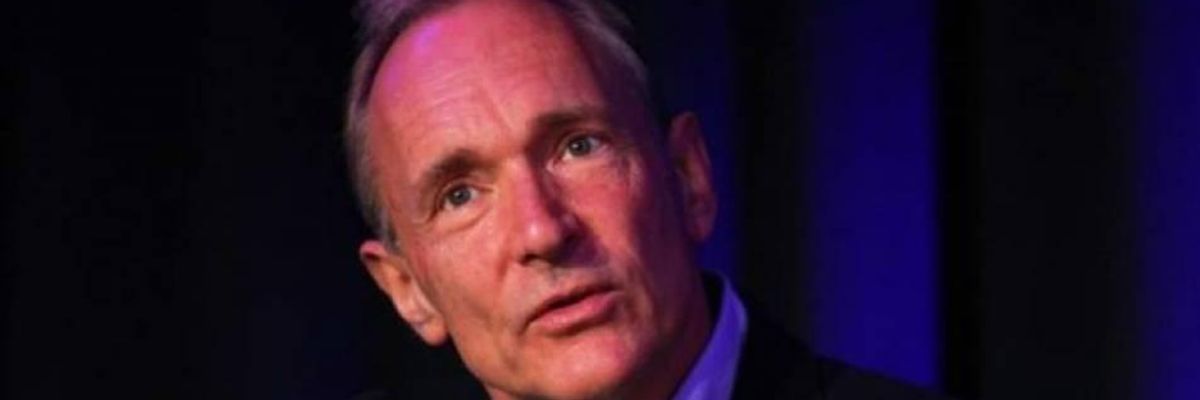The inventor of the World Wide Web is warning that global inequality is being exacerbated by a lack of access to the internet for the poor and urging world leaders to act to close the gap and ensure equity of opportunity for those in developing countries.
"This inequality is a barrier to wider equality, and we know it most affects those who are already marginalized," Tim Berners-Lee said during remarks at the launch of U.N. Secretary General Antonio Guterres' Roadmap for Digital Cooperation Thursday.
The roadmap aims to help communities around the world access the internet, reducing inequalities of connectivity in poorer countries. Berners-Lee noted that those inequities have become more pronounced during the coronavirus pandemic which has left 3.5 billion people without the "lifeline" of connectivity provided by the internet for work and socialization.
"Our number one focus must be to close the digital divide," said Berners-Lee.
In his remarks to the forum, Guterres stressed the importance of internet connectivity to international cooperation and the need to resolve inequities in access in the age of the coronavirus.
"Digital technology is central to almost every aspect of the response to the pandemic, from vaccine research to online learning models, e-commerce, and tools that are enabling hundreds of millions of people to work and study from home," said Guterres. "But the digital divide is now a matter of life and death for people who are unable to access essential healthcare information."
The roadmap intends to provide a path to universal connectivity worldwide by 2030.
"We cannot reap the full benefits of the digital age without mobilizing global cooperation to close digital gaps and reduce potential harms," said Guterres. "We urgently need global vision and leadership for our digitally interdependent world."
Efforts are underway in the U.S. to ensure the richest country in the world is providing internet connectivity to the public.
"There's no excuse for our failure to bring every household online," tweeted Rep. Ro Khanna Thursday. "Affordable internet access is a basic right."
As Common Dreams reported in March, social distancing restrictions brought on by the coronavirus crisis sparked renewed demands for universal broadband access across the U.S. as the inequities in the system to rural and marginaized communities developed into a crisis while Americans shifted work and school to online spaces.
FCC commissioner Jessica Rosenworcel tweeted Thursday that equality of connectivity must be a priority for the country beore the beginning of the next school year.
"Millions of kids couldn't go to school this year because they don't have internet at home," said Rosenworcel. "If next year brings more of the same, shame on us."

